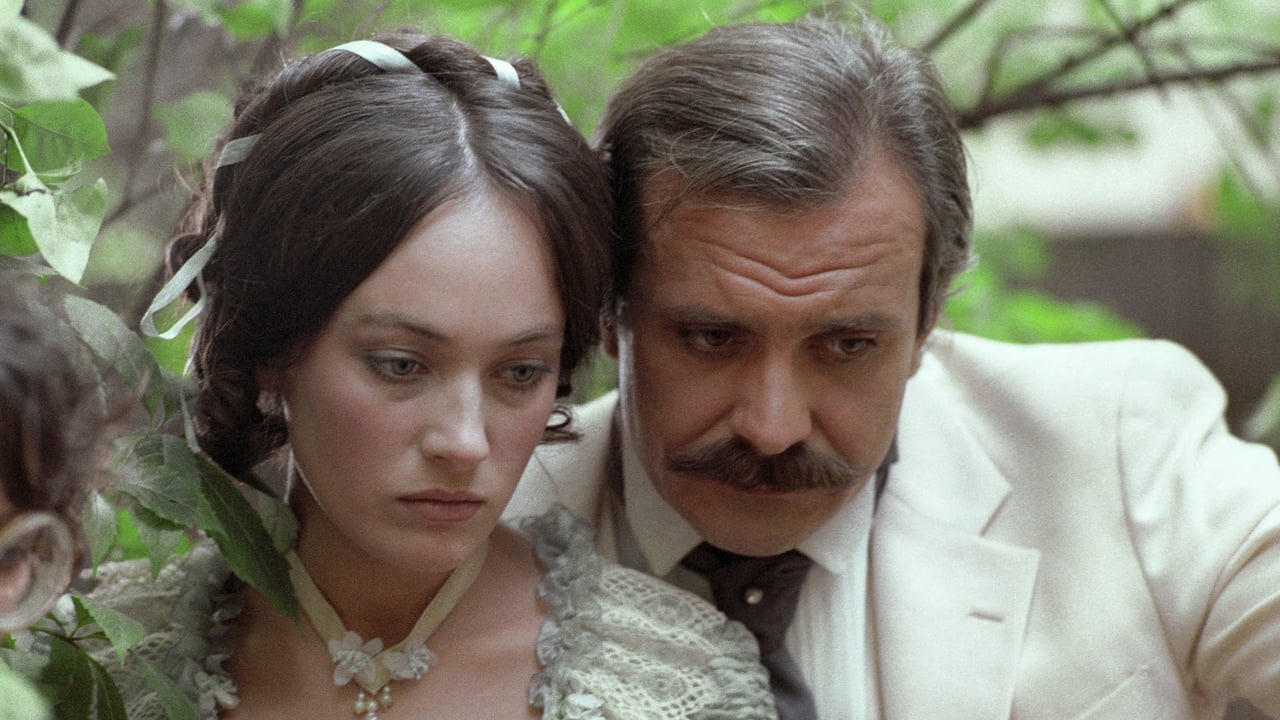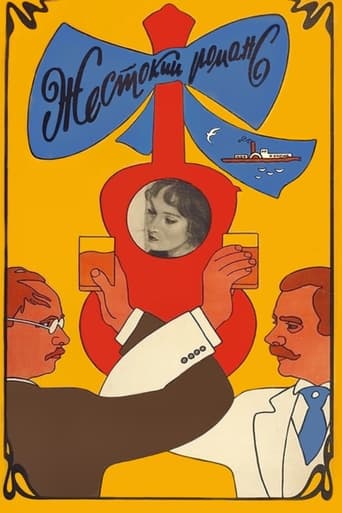

Highly Overrated But Still Good
... View MoreIt’s fine. It's literally the definition of a fine movie. You’ve seen it before, you know every beat and outcome before the characters even do. Only question is how much escapism you’re looking for.
... View MoreBlistering performances.
... View MoreThe film may be flawed, but its message is not.
... View MoreTypically I dislike the romance genre I don't fully know why, but it has never been my thing. However I strongly recommend watching this film. The film focuses mainly on the character Larissa, the daughter of a widowed noble woman who is poor. The mother in question is trying to marry off her daughters to wealthy and hopefully nice men. However later in the film even the daughters who were married off at the beginning of the film as well as prior to it, meet with bleak fates. Eventually Larissa meets with a similar fate as her sisters. This is just a brief synopsis the film is much deeper. It displays a situation that could have happened, or even might have happened in Russia during the late 19th century. However the situation in the film is not just an examination of things that happened in Russia. In fact it is more of an examination of the social norms surrounding women and marriage during that time period. As the film gets darker toward the end Larissa realizes how she is viewed by her suitors. She becomes aware that she is perceived as a fancy object and her life up to this point has basically been an auction. I have seen very few films regarding romance and marriage where a character becomes aware of their own objectification in such a way. There are many characters in the film that have a heavy impact on it, but the two that stand out are that stand out are Larissa and Paratov. Interestingly what makes them stand out is how much they have in common. Both are struck with misfortune as far as wealth goes, both have exceptional talent, and both are considered attractive. The main difference is that Paratov is a man which means that he can solve his misfortune in wealth through a variety of avenues. However Larissa is a woman and in this time period there's no way that she knows of out of her troubles unless it's through marriage. The music and cinematography is excellent. The camera work is stellar there are often shots through windows and as far as I know there were no signs of the cameras reflection in these. The music fits the tone and often matches up with the scenario it is accompanying. Otherwise it uses intentional dissonance. The acting is believable and is lively enough to keep me invested in the dialogue. As with any film I recommend seeing it in its native language.
... View MoreThis film has great music, acting and sets. Overall very good adaptation of the play. I enjoyed it immensely. The film centers around a young woman who comes from a noble family but has no dowry for suitors. It explores the changing situation in the mid 1800s among the classes. At this time there were 3 classes: the nobles, peasants and the emerging raznochintsy class. Many of the characters in the film are from the latter, and the focus upon wealth and social status is apparent. In summary, this is a great film which really shows the changing social structures of the 1850s Russia. I would highly recommend this film to anybody interested in romance or Russian history.
... View MoreFor me, the movie was good and had a lot of great qualities within it. This story of self discovery takes the audience on a roller coaster of emotions throughout the movie.Larisa Dmitrievna (Larisa Guzeyeva) and her family would have been referred to as the class of the raznochintsy's. They were not peasants, but they were not nobles (they would have had noble descent). Surgey Sergeyevich (Nikita Mikhalkov) was another example of this class. There is also parts of the movie where we see Surgey act kindly towards any social class, including the gypsies, which in Russia's history was around the time when the peasants and serfs of were emancipated. One of the main themes that I noticed was the social obligation that people of the time period had to deal with, such as the women marrying someone with money, or the men marrying a woman with a dowry. Women were usually seen more as objects with money rather than real people. That is clearly shown with Larisa, as she realizes she's only an object for people to auction off. There isn't too much that happens with "true love", because the love the characters had for each other was either lust, or only for money. As far as character development goes, I think that Juliy Kapitonovich(Andrei Myagkov) has the most. Throughout the movie he is seen as the "little man", and he stays that way more or less, but shows a side of his character you wouldn't expect. He starts off as a quiet man trying to win Larisa's heart, but he is constantly shut down. By the end of the movie, he's showing his anger and shows his true character when he tries to win back Larisa. All together, I enjoyed the movie and thought the acting was done very well. I also liked the historical significance seen throughout it.
... View MoreOk, this was my first Soviet-era Russian movie, so it was difficult to assess by my (western) standards. By those standards the characters seemed simplistic and exaggerated, and the screenplay cliché-ridden. Also, by those standards, the cinematography came across as ill-developed for the day.However, 'Cruel Romance' was something of a revelation for me. Just as the American Dream is expressed repeatedly (ad nauseam?) in Hollywood movies, I had a strong feeling after watching this movie that the 'Russian Dream' had been laid bare for my comprehension at last. The worship of impossible romance combined with blindness to all practical considerations and the expression of that romance in the gift of expensive baubles and other grand gestures are the main threads running through this story. And, despite the fact that 'Cruel Romance' is a Soviet-era depiction of 19th century Tsarist Russia, these are cultural traits to be found in abundance in modern-day Russians. For this reason watching the movie was a treat to me personally, and henceforth I will view my Russian friends and colleagues with a slightly higher degree of understanding.Also, I hope to see many more Russian movies in the future !
... View More